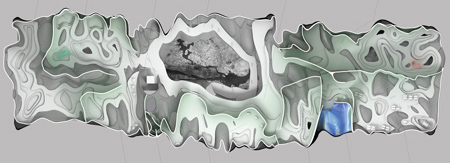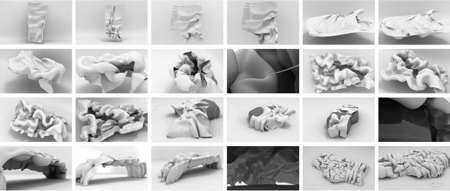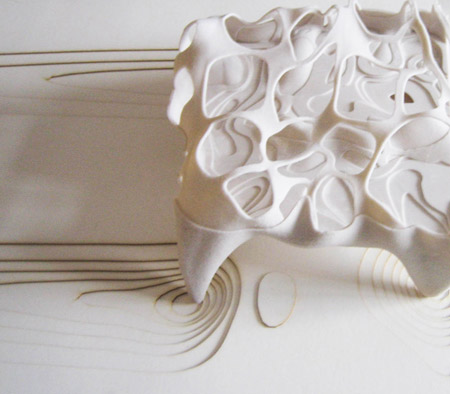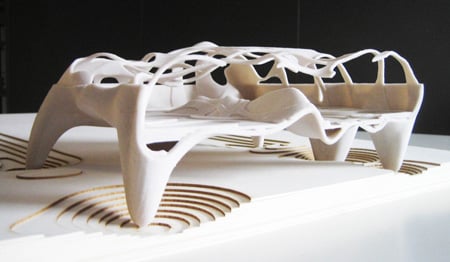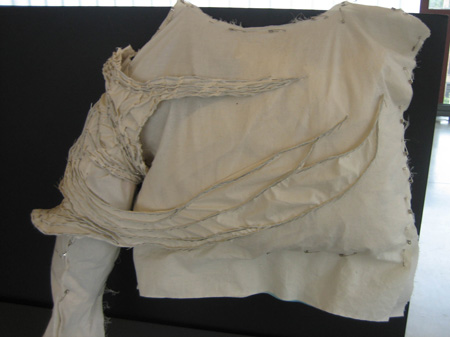
Queens Museum of Art by Elliot White
Elliot White, a 3rd year architecture student at Pratt Institute in New York has sent us these images of his conceptual design for a redevelopment of Queens Museum of Art at the World’s Fair site in Queens, New York.
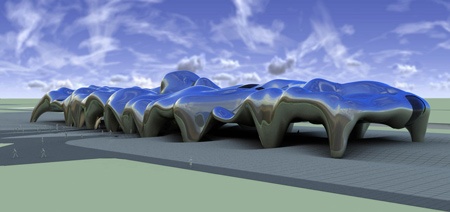
The design is raised off the ground, creating a public space underneath that can be used for events when the museum is closed.
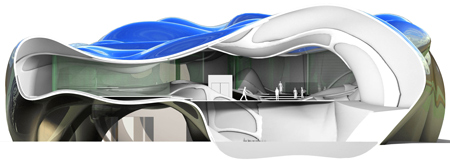
The building would be constructed using a lattice structure, covered with a layer of concrete. During construction a huge plastic bag would be inflated inside the structure to support the concrete until it hardened.
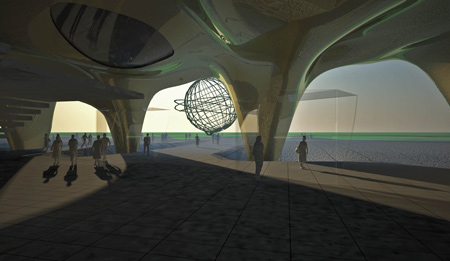
The museum is intended to contain a model of New York City’s five boroughs.
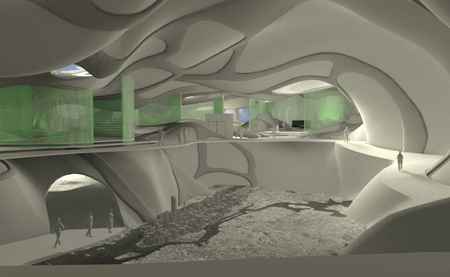
The information below is from Elliot White:
--
This project was completed in the fall of 2008 under the direction of David Ruy and Karel Klein of RuyKlein. The intention was to develop sensitivities to surface conditions. The work included physical and digital modeling experiments in cloth. The site is a redevelopment of the Queens Museum at the World’s Fair site in Queens, New York. The museum contains a permanent display of a very large-scale model of New York City’s five boroughs.
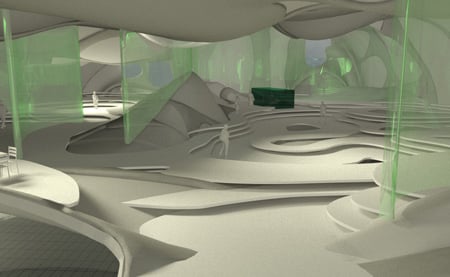
Unexpectedly the physical modeling of the cloth produced a most interesting and unintended result. This unexpected result however, provided a fantastic jumping off point for digital exploration. By raising the program off the ground level a public space is created under the building that offers access round the clock, offering space for events even when the museum is closed.
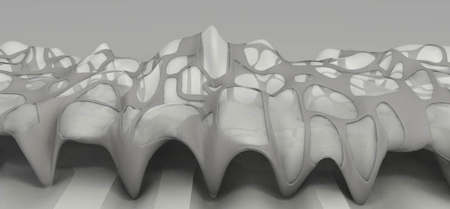
A structural lattice provides ample interior spaces while creating a process that significantly simplifies construction. A plastic ‘bladder’ is inflated inside the structural lattice, then a layer of Concrete Canvass is laid on top, sprayed with water, and sets on the outside of the lattice.
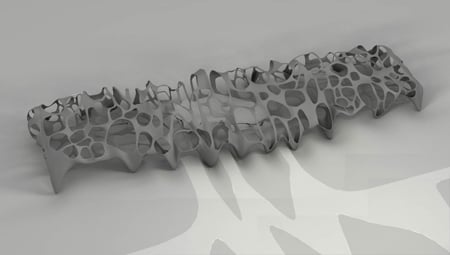
As for the interior, I wanted to create a sense of corporeality. To accomplish this I have taken the top lines of the interior of the shell and pulled them out in a manner that creates a landscape that must be negotiated in three dimensions. The interior walls would be constructed out of stacked glass, creating translucent divisions of the rooms.
